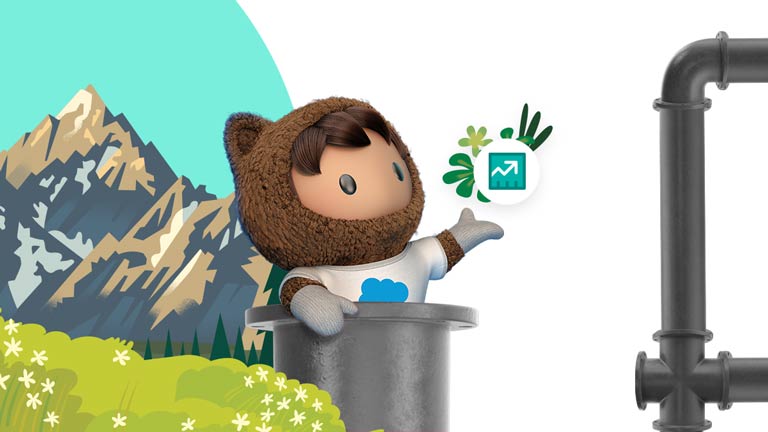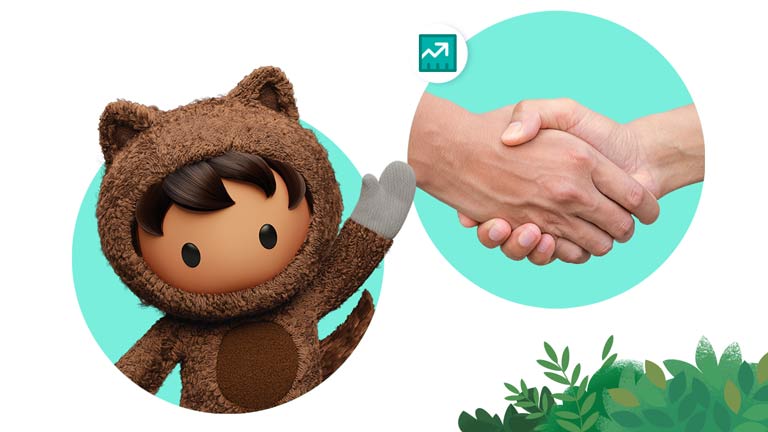How to Close Sales Like an Absolute Pro
There’s no one way to close a deal, but these tips will help you create a winning game plan.
We've all seen movies with romanticised scenes that focus on the close – intense negotiations and salespeople punching the air in celebration. They're trying to capture that thrilling, elusive moment when you close a deal. That’s why we’re all here. We love to help customers, chase new challenges, and in the process, hit those numbers.
But sales closing is an art, and like art, its style changes over time. We’ll move past outdated and ineffective techniques and talk to sales experts to get the nitty-gritty of what it means to close like a boss in today’s world.
What we’ll cover:
What is sales closing?
Sales closing, or getting a prospect to agree to a deal and sign a contract, is how reps make their quota and how businesses grow revenue.
It represents the culmination of all your efforts. You put in the time and made a strong case for why your solution can alleviate the prospect’s pain points. Now that you’ve popped the question with a (sales) proposal, it’s time to find out if this prospect is ready to commit.
Getting to that yes takes a lot of patience and persistence. Prospects will often say no before they get to a yes. The problem is, many salespeople give up before they reach that yes.
As we’ll explain further, sales closing isn't the only stage of the pipeline that matters, but it is absolute. You either close or you don’t. The make-or-break nature of sales closing can make it one of the most stressful aspects of selling, but it doesn’t have to be.
“Closing the deal only comes after many successful steps leading up to it – it should be the easiest part of the process," says Tahsin Alam, Vice President & GM Indonesia & Philippines at Salesforce. "The groundwork has already been done – closing just adds the finishing touches.”

What are the most common sales closing techniques?
1. Assumptive close
2. Puppy Dog Close
3. Scale Close
4. Scarcity close
5. Takeaway Close
6. Summary Close
"Approach each customer with the idea of helping them to solve their business challenges, not only with a focus on selling your products or services. Successful salespeople are the ones who can identify a business challenge to resolve."
"Approach each customer with the idea of helping them to solve their business challenges, not only with a focus on selling your products or services. Successful salespeople are the ones who can identify a business challenge to resolve."
How do you improve at closing?

Know the customer.

Know their objections.

Know the decision maker.

Know when to fold ‘em.
Sales representatives don’t close every single opportunity in their pipeline. That means a lot of the prospects that come your way may not become customers. It’s also possible a small percentage of leads could bring in a lot of your revenue, which means you don’t have to pursue those unlikely to close. Knowing when to move on is critical. Don’t dwell on prospects that have shown no interest in closing. You’ll lose sight of more promising opportunities.
“You can’t win them all – the trick is identifying early when a prospect isn’t interested," says Alam. "Take that experience, and turn it into useful insight for the next prospect. Every loss has something to teach you about your processes and strategy.”

Know you’re part of a team.
Combined expertise will outweigh one person’s expertise every time. When you’re facing hurdles, lean on your collaborative tools like Slack to connect with your fellow reps or your sales managers in real time so you can decide your next move as a team. We recommend even creating deal-specific channels in Slack that can act as a repository of knowledge and support for high-level opportunities.
"You should have confidence in your team and ask for help when you need it. You might not always have the answers you need, but your team will always be able to back you up," says Alam. "Selling is a team sport – work as a team, and you’ll win more deals – it’s as simple as that.”
"Selling is a team sport – work as a team, and you’ll win more deals – it’s as simple as that.”
"Selling is a team sport – work as a team, and you’ll win more deals – it’s as simple as that.”
What sales closing mistakes should you avoid?

Going in for the hard close.
Pressure selling is out, empathy selling is in. When you come out early with an ask for the sale and then keep aggressively asking before you’ve even truly established your product’s value, it shows little consideration for the buyer. It makes it appear as though you're speeding through the sale to meet your quota, and it’s off-putting. After all, selling isn’t about you, it’s about them.
As Jimmy Storrier puts it, "happy customers that have bought from us will usually describe how a salesperson created a positive 'buying' experience. They very rarely ever talk about being 'sold' a product."

Not asking for the sale.

Only closing at the end.
“Focus not on what you want to sell, but on what the client wants to buy. You have to live and breathe the client’s business and not just yours.”
“Focus not on what you want to sell, but on what the client wants to buy. You have to live and breathe the client’s business and not just yours.”
What's next?
More Resources

The Future of Sales: Go for Growth!

Salesforce Live Asia: Episode 3 for Sales Trailblazers






